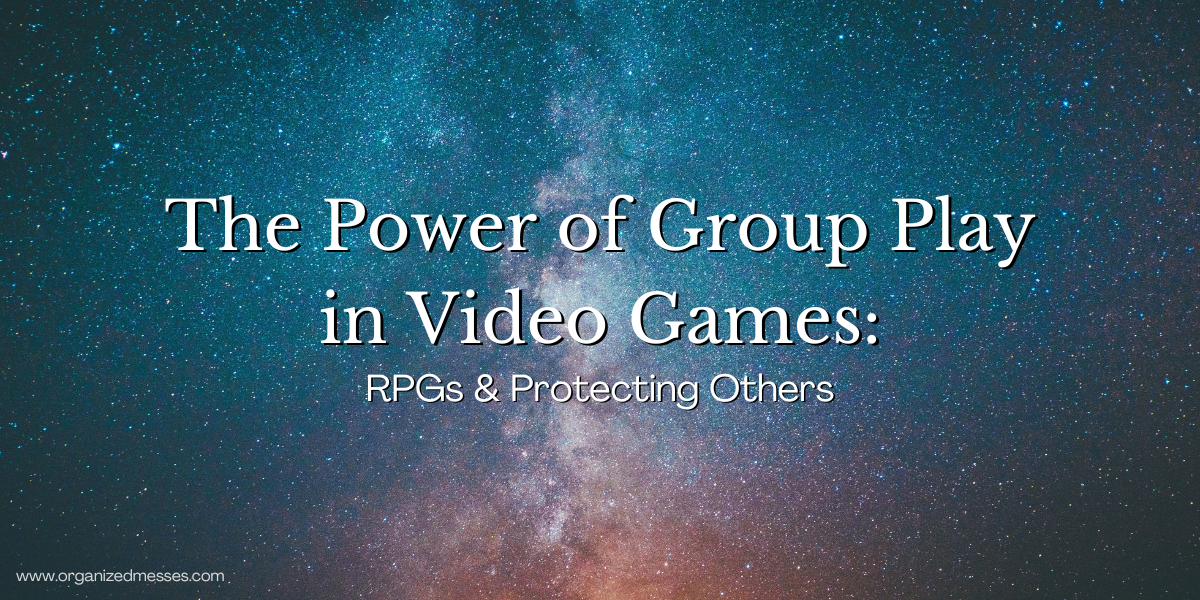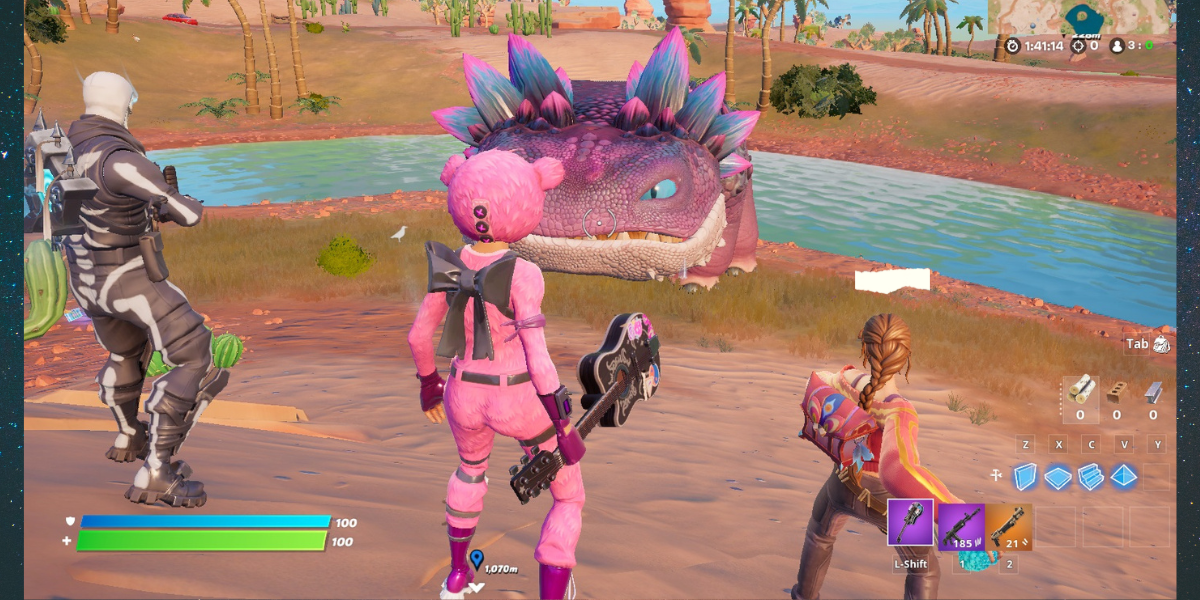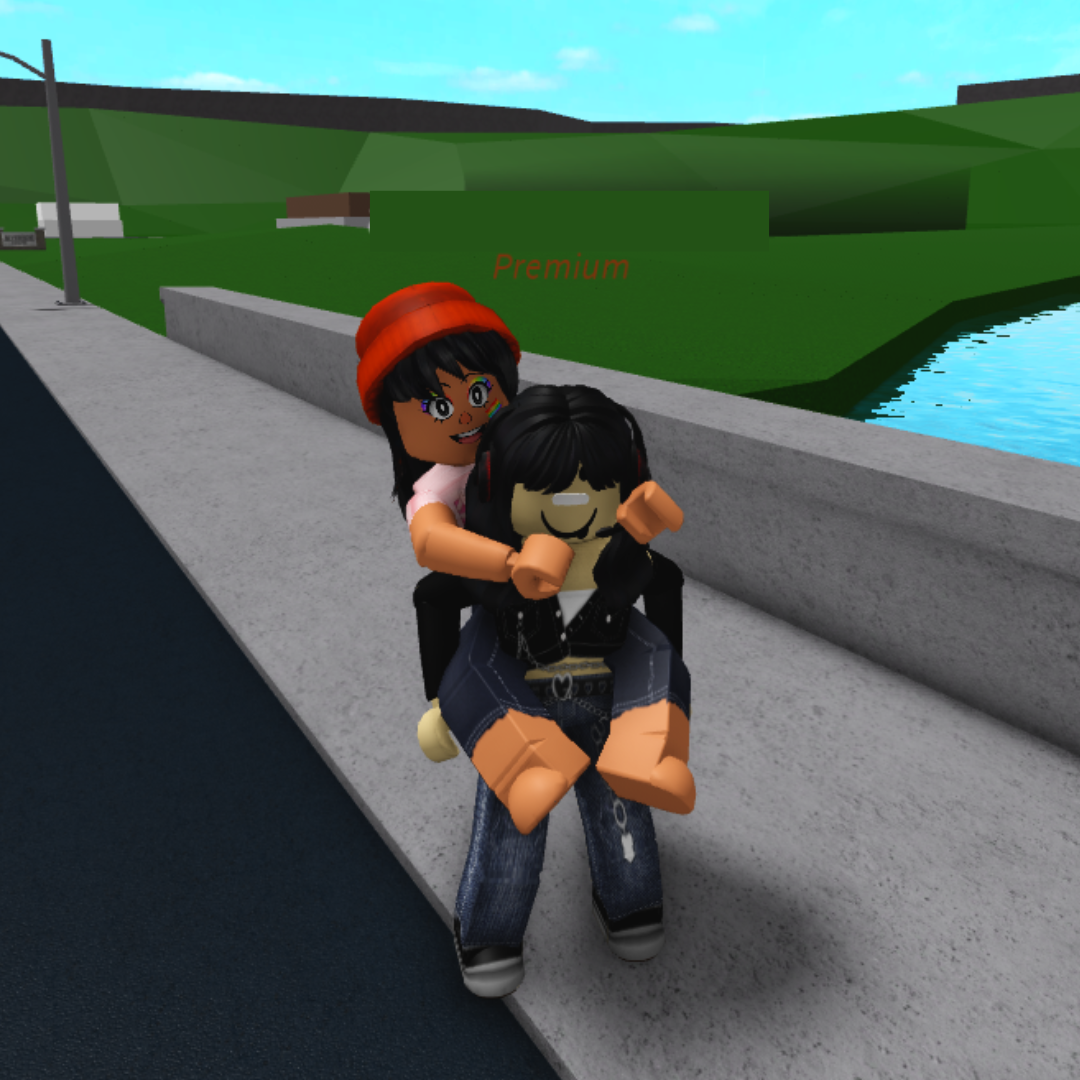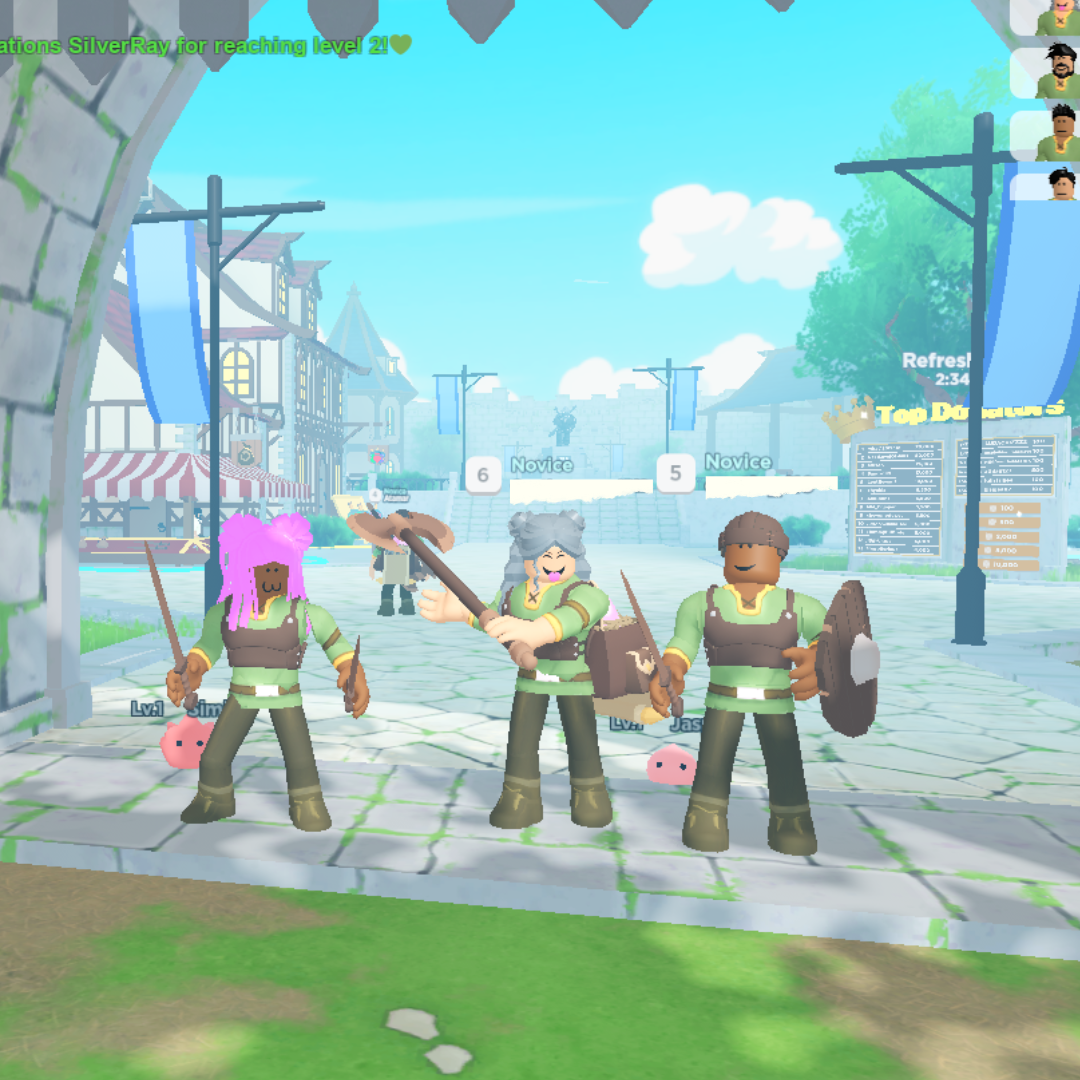Why Some Neurodivergent Gamers Seek Safety in Gaming Spaces
My posts are specifically for neurodivergent people and those who consider video gaming an integral part of their lives. When our brains and bodies are different, there are things even we don’t fully understand about ourselves. We wouldn’t be able to explain to others why taking part in a virtual world is so powerful and important, but it is. I hope to write on reframing experiences to add to how we see others in our lives, and for gamers to have the opportunity to explore who they are. This will help you pick and choose how to describe your world and how to advocate for yourself.
Why We Need Safety to Practice Life Skills
Whenever we talk about the differently wired brain, there will be invisible conditions and hardships other people will not see from the outside. There is a high correlation between sensory differences that overwhelm and drain the brain, making “easy” tasks like everyday living difficult for many people. A lot of gifted and creative individuals also get comments of, “You’re so smart. This should be easy for you. Why are you being so lazy?” When these comments and judgments are given over years, it can make someone feel useless, weak, and like they are making excuses for struggling with the simplest things.
Our brain isn’t efficient in some ways. In other ways, we can be creatively gifted with ideas or specific disciplines. Sometimes we’re considered “slow” because of a learning disability or processing difference. Because of these asynchronous brain pathways, we may have difficulty learning something our typical peers can easily do. Sometimes we can learn and do something with enough repetition (like 100s of times or more) or we are being taught in ways that don’t make sense to us so these life skills remain a mystery.
Sensory Safety
With the neurodivergent brain, certain parts of the brain are stimulated more easily and intensely, and others are not. It’s why some of us feel pain when we hear something other people shrug off. It could be why certain fabrics, foods, or scents can make us feel deeply uncomfortable, and possibly in pain. Everything could be more intense, even pain. Living with so many intense feelings or physical sensations can make it difficult for us to focus on tasks or follow through with requests. The intensity of stimuli can evoke a feeling of danger around us. Our brains might be in a constant state of stress where the priority is seeking safety. And constantly being in a state of survival can lead to panic attacks, high anxiety, or fatigue from feeling stressed often.
We try to mitigate sensory overwhelm by stimming or avoiding stimulation. It’s why you see us biting our fingers, flapping hands, repeating certain words, touching things, or humming to ourselves. Playing video games can also be a way to stim or cope with a very intense outside world.
And because our brains are “inefficient” from having our neural networks connecting to many overlapping pathways, it can lead to overstimulation, confusion, or difficulty learning or doing certain life skills.
Physical Safety and Accumulated Experiences
There are many invisible conditions that add to the difficulty of accomplishing life skils. For instance, are you or your neurodivergent person clumsy? Because of a difference in proprioception in our bodies, we may live in a body that does not respond quickly to outside stimulation so we trip on things, fall, griip things too loosely or tightly, drop items often, bump our heads into cabinets, or lose balance for “no reason.” It can be a dangerous place for the extra clumsy where part of our brain power is being used to not fall or drop something when a typical person doesn’t have to use extra brain power to do the same thing.
So our reserves are being drained more quickly because our bodies aren’t calibrated with the environment. Over time, we may also implicitly or explicitly get the message that the world is an unsafe place. (All the accidents, tripping, falling, and bumping into things over the years may be another reason why we seek comfort inside and with video games) It’s safe inside!
Chronic and (Unnamed) Conditions
Being in the Neurodiversity Affirmative Therapists and other (Actually) Autistic Facebook groups for several years I’ve observed seeing stories of certain conditions paired with having divergent neurotypes. Some are:
POTS Postural Orthostatic Tachycardic Syndrome
Autoimmune conditions like Celiac disease, inflammatory bowel disease (IBS), psoriasis
Ehler Danlos Syndrome (EDS)
Poor Interoception — inability to sense hunger and thirst cues, how our body responds to stimulation, correlated with an inability to identify emotions and self regulate
Learning Disabilities like Dysgraphia, Dyscalculia, Dyslexia
These conditions (and more) contribute to the complex inner workings of a person who could be trying every day to manage pain and flare-ups in addition to accomplishing daily tasks. The medical part, especially when undiagnosed or identified, can make someone feel like they have no language to explain why they’re so tired, have brain fog, feel pain, or can’t do something at the moment when other people can.
Bullying, Misunderstandings
When you’re different, you can be a target for bullying and jokes. People could think it’s lighthearted to take jabs at someone for being different, but again, years of people making comments about how you communicate, your habits, interests, and the way you dress add up. It’s not fun being the target for jokes at every social gathering or having a feeling you’re being made fun of, but you can’t really understand why either.
It’s safer and more enjoyable being home playing games. Your online friends or video game characters won’t betray you. They’ll always be there.
When you’re misunderstood often, without the language to communicate needs or your inner experiences, it can feel like being between a rock and a hard place. Sometimes or many times, people may get frustrated over your way of thinking or processing stimulation where they think you’re acting out or attention seeking instead of getting tasks done. Behind the surface of a tantrum or looking “noncompliant” could be:
Sensory or emotional overwhelm
Not understanding the directions
Foundational skills other people learn without being taught, we need to be taught so we are perpetually confused and making mistakes
Not knowing how to use a tool
Forgetting how to do something
Auditory processing differences
Fatigue or pain from chronic conditions associated with neurodivergence (but not always known or diagnosed)
Shame from being told again and again how to do something but not getting it
A trauma response with having a hypervigilant brain and body
Shame & Mistakes
“Stop asking again. I already told you how to do it!”
“Put your hands down. It’s awkward when you do that.” (When we attempt to stim to self regulate)
“That was SO EASY. How did you make these mistakes?”
“Don’t talk about X subjects to anyone at the party, okay? I don’t want to be embarrassed.”
“Why are you repeating what I just said? Think inside your head!”
You’re not overwhelmed. You’re being sensitive and lazy. Just do it!”
It’s frustrating when a loved one doesn’t understand something like a homework lesson, or social etiquette. Especially when you’ve told them over and over again how to do something. The accumulated misunderstandings and comments can lead to shame. It’s difficult to move forward in life and grow when loved ones and society tell us demoralizing messages and don’t always believe our lived experiences.
Social Model of Disability (wikipedia)
The frustrating and disappointing layers of being neurodivergent include fighting institutions like education, medicine, and social spaces to honor the needs, struggles, and different lived experiences of others. Seeking accommodations, inclusion, and equity at any part of life can be overwhelming. You are already a marginalized and vulnerable person and have to provide proof of a need when it should be the other way around.
Asking vulnerable people to go through hoops to receive aid is the opposite of a nurturing society. It is another reason and system why disabled and neurodivergent people are seen as potential burdens of society.
The message perpetuates and can become our identities: If we cannot function and provide economic value to a certain degree, we are equated with being less than others, and we are seen as useless. People bully us, and the systems themselves do not support us. With this societal message and internalized identity, why would some of us want to go outside of video games?
Using Gaming to Support Life Skills Development
If so many of us are using games to escape a world that doesn’t support or accept us, why not use these same games to develop life skills?
The REFRAME: With guidance and compassion, we can use the things our loved ones enjoy to practice different skills. Highlighting moments when you see the skill being used can help a gamer see a bigger picture of how to use their interests to grow. It is building a new lens of intention and positive play.
In the same way an athlete needs a coach, a gamer needs guidance on how to perform to their best abilities. A gamer also needs a coach or guide on how to use games to develop intangible life skills.
Winning & Losing: This is a part of life. The hard part is getting up and doing it again, whether you win or lose. Games can offer great life lessons and sometimes we just need someone to help point them out. Just like being a good sport, the passion and joy come from the game itself and being a better player each time.
Communication: Games can be used as topics of conversation and they can be opportunities to communicate within the games themselves. Some of us are more comfortable communicating through text or a headset, or with avatars. All these forms of communication are valid, and can help connect your gamer to community.
Twitch and other streaming communities also offer a form of parallel play that is comforting and less intense or demanding than in-person socialization. This is a very valid form of connection that can help people feel part of something bigger.
Planning and Prioritization: Some games require methodical planning to complete difficult dungeons or quests. This is a great way for seeing how your gamer plans and prioritizes tasks in a safe environment. When this executive function skill is not well developed, there could be big mistakes made when unable to plan. Practicing multiple times through a game can offer an easier time to bounce back when mistakes are made.
Problem Solving: Some games are hard. There are big maps to navigate and confusing directions to follow. Luckily there are wikis and communities to find answers. When you feel like life outside is difficult to navigate and figure out, successfully problem solving in a game can help build confidence to try problem in different areas of life. Pointing out this skill with specific moments in-game can help your gamer remember that they can solve problems!
Helping Others, Asking for Help: In multiplayer games, there are options to help others. When socialization could be more difficult outside the game, this virtual experience offers an opportunity to practice safely communicating and seeking support from people with similar interests. In multiplayer games, many seasoned players help people. If your gamer is very good at their game, they also have the option to help noobs (people who aren’t so good). This can build a sense of purpose and fulfillment.
Trying Again After Failure: Trying again after a failure in video games could be easier than in the outside world. Building the habit of trying again virtually can help someone feel more comfortable with taking this skill to other parts of life. When your gamer has a difficult time trying things in “real life” try introducing new types of games over time, and see how they try again with the games they like. Use these observations as a mirror to support praising or objectively noting these experiences.
Following Directions: The differently wired brain may sometimes come with auditory processing or learning differences that make following directions difficult. To build self-esteem, gaming can offer extra practice with following directions successfully. Again, the loved one’s job is to point out these moments of success so your gamer has some evidence that they are capable of trying again.
Channeling Difficult Emotions: Gamers have to exhibit a certain degree of self-control and focus to win games. Before playing, a person can coach or practice self-regulating exercises with their gamer so the skill can be ready to access during intense moments. Pair it with how athletes work on mastering mind and body and it can help a gamer learn very important calming skills to be a more effective player.
These skills can be identified and nurtured with your gamers. Video Games can be tools and mirrors of who we are. It depends on how we use them. There is also a real awareness of playing too much where multiple areas of life are neglected. To explore potential trauma work, it’s recommended to seek a gaming affirmative therapist who understands neurodiversity and the social model of disability.
This blog post is a compassionate response to how gaming can be a refuge from the harm done by social systems and the outside world.
References:
Proprioception — HyperMobilityDoctor IG
Collaborative & Proactive Solutions — Dr. Ross Greene
Childhood Trauma: Understanding Behavioral Challenges as Survival Instincts — Dr. Mona Delahooke
Brain Structure Changes in Autism, Explain — SpectrumNews.org
Social Model of Disability — Wikipedia
Learning Disabilities — Very Well Mind
How Abuse Mars the Lives of Autistic People — SpectrumNews.Org
What Being a Hero in Video Games Teaches Us — Organized Messes
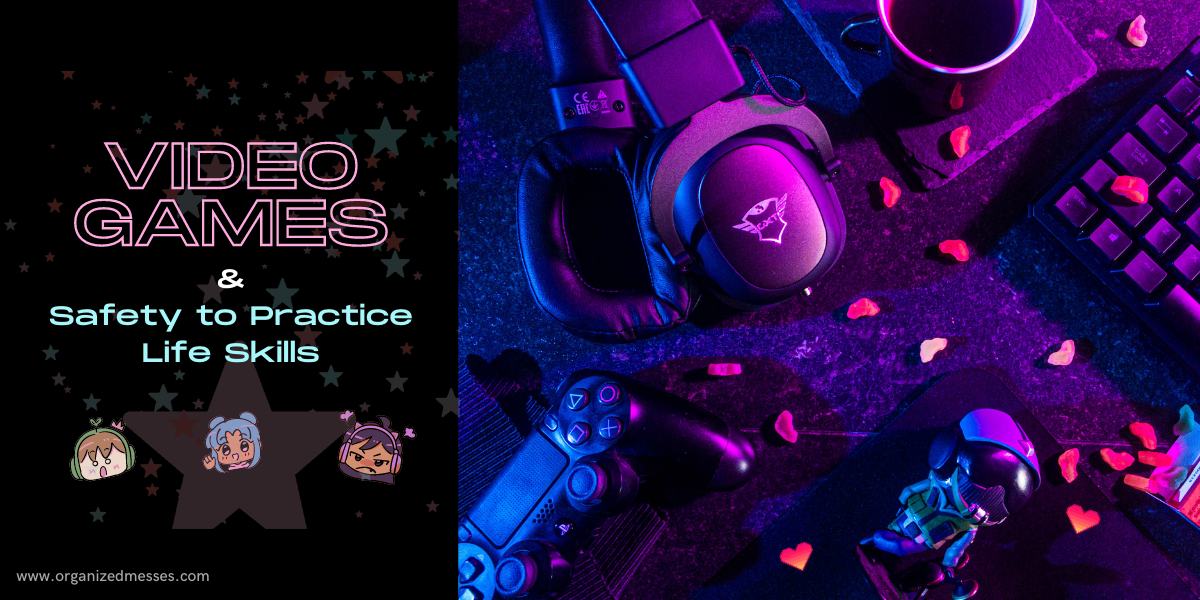

![1[1].png](https://images.squarespace-cdn.com/content/v1/52f70d47e4b04c51e900bb36/1660847255170-24K4ER47HQZWZ7OLG3EU/1%5B1%5D.png)
![2[1].png](https://images.squarespace-cdn.com/content/v1/52f70d47e4b04c51e900bb36/1660847286316-2OBXBD9IYOD0DOZ5B94Q/2%5B1%5D.png)
![3[1].png](https://images.squarespace-cdn.com/content/v1/52f70d47e4b04c51e900bb36/1660847309658-A3MMFE61LGC3Y7ZYXXSR/3%5B1%5D.png)
![4[1].png](https://images.squarespace-cdn.com/content/v1/52f70d47e4b04c51e900bb36/1660847334251-UGMGGK7OK1IDPO2YDGMO/4%5B1%5D.png)
![5[1].png](https://images.squarespace-cdn.com/content/v1/52f70d47e4b04c51e900bb36/1660847383080-3WPW7SP791M5E6V3G943/5%5B1%5D.png)
![6[1].png](https://images.squarespace-cdn.com/content/v1/52f70d47e4b04c51e900bb36/1660847402853-HBGXEY0WOMS7R15CEBMM/6%5B1%5D.png)
![7[1].png](https://images.squarespace-cdn.com/content/v1/52f70d47e4b04c51e900bb36/1660847414126-YW0R0D7528LM9RELRDVM/7%5B1%5D.png)
![8[1].png](https://images.squarespace-cdn.com/content/v1/52f70d47e4b04c51e900bb36/1660847430243-APWH9KV5BFWO8HVHEC76/8%5B1%5D.png)
![9[1].png](https://images.squarespace-cdn.com/content/v1/52f70d47e4b04c51e900bb36/1660847442130-FDGT0FM0E40VBEMGYNAB/9%5B1%5D.png)
![10[1].png](https://images.squarespace-cdn.com/content/v1/52f70d47e4b04c51e900bb36/1660847453994-V05Q07OOILE5MA1O100A/10%5B1%5D.png)
